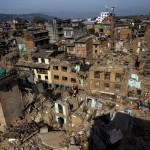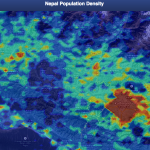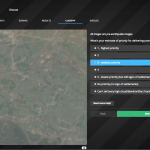ORCHID Researchers have been providing crucial support and expertise to the emergency response efforts in Nepal, following the devastating earthquakes that have hit the country in the past few weeks.
The ORCHID project, a collaboration between the universities of Southampton, Oxford and Nottingham, have worked with Rescue Global, an international disaster response charity, to provide situation awareness for aid agencies in Nepal. Orchid is one of the core Academic Partners in Rescue Global’s Crisis and Disaster Resilience Alliance (CaDRA).
ORCHID looks at how people and computers can most effectively exchange information and work together, especially in the aftermath of major disasters. In particular, ORCHID researchers at Oxford mapped priority areas for water filters around Kathmandu as requested by Rescue Global. By using crowdsourced data, they were able to map settlements across the affected areas and identify aid and search and rescue priorities.
Professor Nick Jennings, who leads the ORCHID project, says: “this is a great example of how advanced computing technologies can be deployed to save lives and lead to more effective rescue operations”.
Dr Steve Reece, from Oxford University, says: “we were very keen to help out in Nepal after the news of the earthquake broke. When our Zooniverse collaborator in Oxford Physics obtained a very large quantity of satellite images of the disaster area, we sprung into action. We immediately contacted Rescue Global who we knew could also make use of this data to address its reconnaissance needs. With their guidance, Zooniverse software and ORCHID data processing technology we were able to focus our efforts and deliver incredibly quickly”.
HQ NATO, Director General Military Staff, Sir Chris Harper KBE, praised the efforts of those involved:
“In a congested, contested and unwittingly over-crowded environment the organisation seemed able to operate with rapidity, wisely and with positive effect.
“I also noted the organisation’s testing of a new approach to the use of people, computers and social media, to identify Search and Rescue targets of interest. This included a clever blending of imagery from Rescue Global CaDRA partners in theatre with stock library material to produce mapping and briefing products that were used by commanders in theatre to deploy Urban Search and Rescue, as well as Medical teams to best effect.”
See the full news link here


